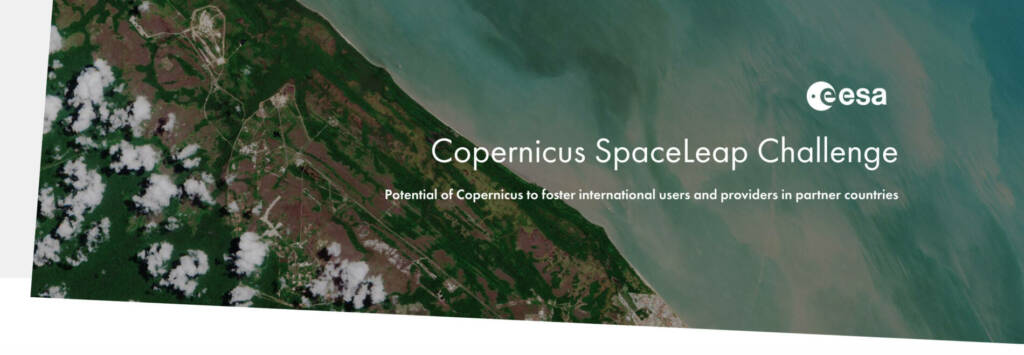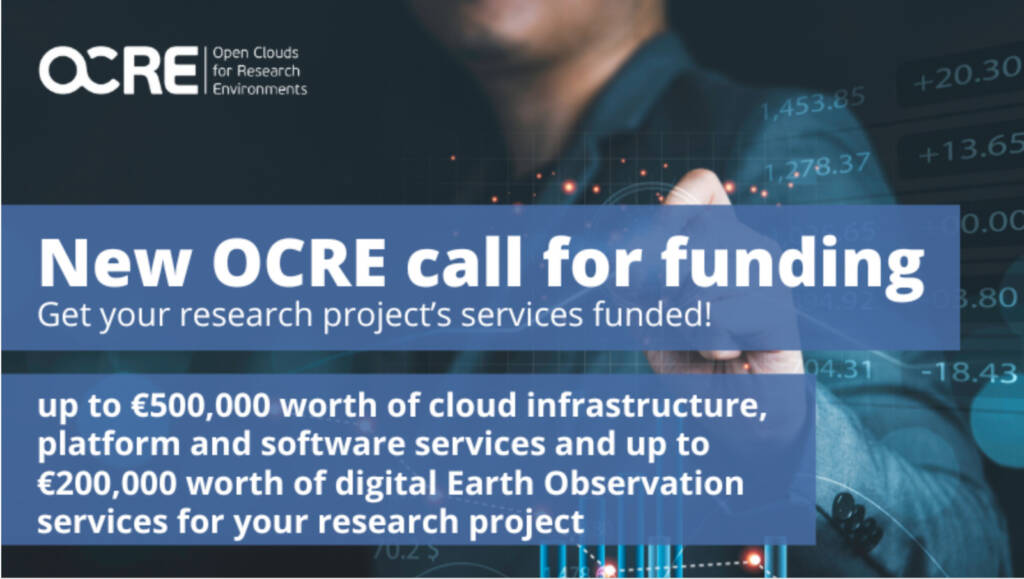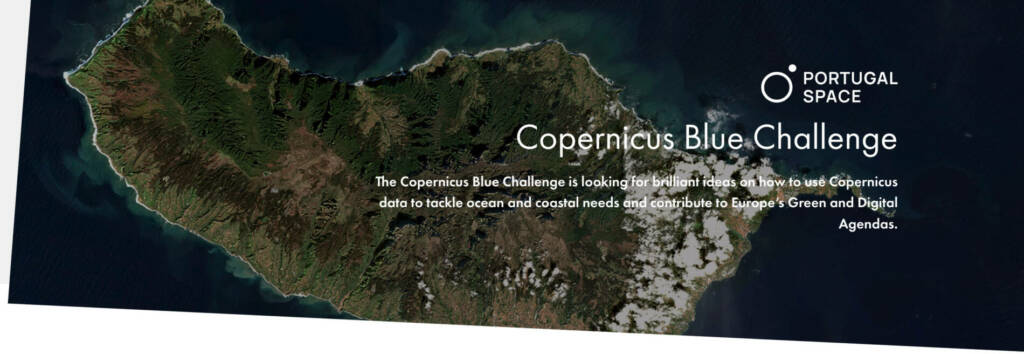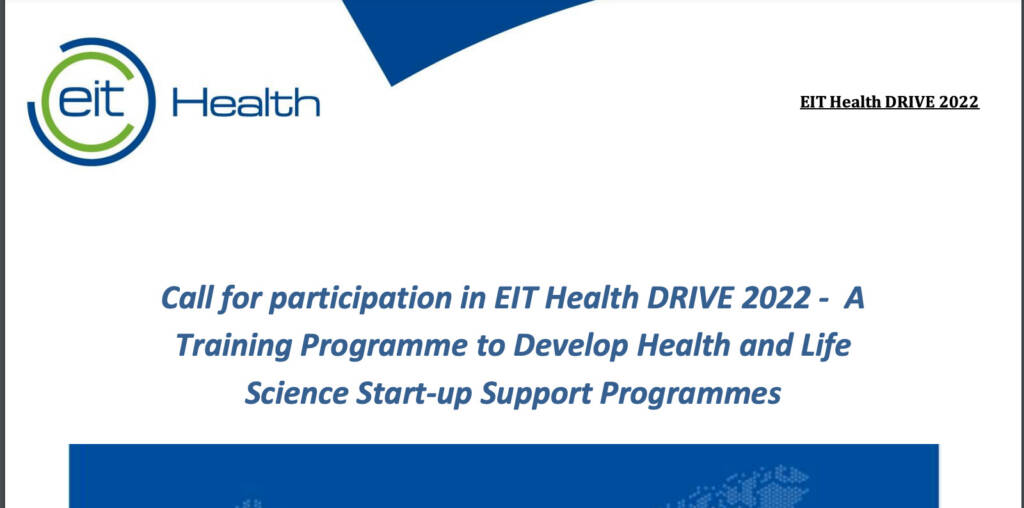A curated list of challenges, programs, funding opportunities, academic research and startups that have caught our eye.

ESA-Copernicus SpaceLeap Challenge
ESA seeks entries that can demonstrate societal benefits from Copernicus and Copernicus’s potential to foster international EO market development for space-based information products and services.
The ESA Copernicus SpaceLeap Challenge is a special initiative for participants from countries implementing Copernicus Cooperation Arrangements and other selected countries outside of Europe, in particular participants from the EU Eastern Partnership region (Ukraine, Moldova, Georgia, Armenia, Azerbaijan).
Eligibility
The ESA Space LeapChallenge accepts proposals only from enterprises, scientific institutions, and individuals of legal adult age having a permanent residency, their headquarters or nationality in countries that have signed a Copernicus cooperation agreement on Copernicus data access and Earth observation data exchange. Namely: the United States, Australia, Ukraine, Chile, Colombia, Serbia, African Union, India and Brazil. Plus Eastern Partnership Countries: Georgia, Moldova, Ukraine, Armenia and Azerbaijan.

OCRE EC Funded Earth Observations Service Adoption Call (Research)
OCRE is delighted to announce the final call for proposals for EC funded Earth Observation services.
**** OCRE invites you to submit a compelling proposal explaining your research project and why you would significantly enhance your research activities and improve the outcomes using Earth Observation services from an OCRE EO supplier.
The suppliers use Copernicus data and cloud services to develop bespoke services focused on your needs as a researcher in Europe. Please visit the OCRE EO Catalogue for examples of available services (https://www.ocre-project.eu/eo-catalogue).
Successful proposals will each be awarded a maximum of EUR € 200.000,00 (excl. VAT) of OCRE adoption funding for the consumption of EO services from one of these suppliers (minimum funding request is €100.000,00).
Your proposal must convince the OCRE project board to fund digital Earth Observation (EO) services for your research project. Be sure to:
1. Clearly specify your research discipline
2. Describe your project focus and relevance within this discipline and how it will achieve adoption of EO services in further research in this field
3. Suggest why you think your project will make a good case study on the benefits of digital EO services for research and attract the attention of the research community
Bids and supporting documents must be in English.
Financial Contribution
The final OCRE adoption funding programme will offer researchers requiring EO services from €100.000.00 to a maximum € 200.000,00 (excl. VAT). The research projects must be able to demonstrate significant benefits in terms of the adoption of Earth Observation services on their activities and outcomes.
Disclaimer:
Projects already consuming these services at scale, or receiving similar funding, will not be considered in the awarding process. It is imperative that this initiative drives the adoption of cloud-based digital services.
Due to EU VAT & Voucher Directives this Tender does not cover the countries / lots outside of the EU or UK. In the first call, institutes outside of this region were able to consume awarded services for project collaborations with institutes inside the EU. If you are working within such a research collaboration, please encourage your counterparts in the EU to assist with the submission of a compelling proposal. Research projects spanning more than one country have a good chance of being awarded digital services through OCRE.
Evaluators:
The applications will be evaluated by the OCRE funding team under the oversight of the OCRE External Advisory Board (EAB), experts with insights into European research activities who have no conflict of interest.
Minimum requirements and word limit for applications
All minimum requirements that should be met for submitting the proposal successfully by the researcher/institute, and word limit for each of the answers on the proposal, will be guided by the online EO funding form (link on the OCRE site https://www.ocre-project.eu ).Further information
Case study participation
The Institution must be prepared to work with the OCRE project team in developing a use case study describing project activities and outcomes and the impact of the Earth Observation (platform) Services based on Copernicus data, procured via the OCRE project (funded by the EC). This would require short interviews at various milestones within your project’s timeline and commitment to reviewing and endorsing the case study once the digital services have been consumed and enhanced your project’s capabilities.
Other criteria and conditions
Successful candidates (projects) ONLY will be notified and required to complete the following –
Contracts
Please find the applicable MoU to be filled in by your institution on the yellow marked parts and to be agreed and signed between GÉANT and your Institution.
Please download the MoU filled in with the information about your institution and project (at the yellow marked parts) signed by authorised person within your Institution.
Please find the Draft version of the contract to be signed between your Institution and the awarded supplier to govern the delivery of the services. Please provide this contract to your legal department to check and provide their feedback on. This feedback needs to be provided within 2 weeks of the awarding of the funding. NB this contract is only a format.
Please find the applicable Voucher Contract to be signed between GÉANT and the awarded supplier for information purpose ONLY.
By submitting this request for EC funding the Institution agrees with the above contracts and that underlying general T&C’s will be provided by the awarded supplier TBD.
Background
The European Commission is determined to make this Europe’s digital decade. The EU’s digital strategy will empower research with a new generation of technologies.
Europe must strengthen its digital sovereignty and set standards, rather than following those of others – with a clear focus on data, technology, and infrastructure.
High-quality science, knowledge and innovation accelerate all aspects of the digital and industrial transformations and will bring us closer to achieving the Sustainable Development Goals (SDGs).
Earth Observation adoption projects should demonstrate significant benefits from using the EO services for the specific Institutions of represented R&E community, stimulating above principles.
More Information
For further information please consult the OCRE website (refer to EO funding call): https://www.ocre-project.eu/funding-opportunities/ocre-funding-and-procurement-callTask description
The OCRE project intends to stimulate the market of Earth Observation based digital services suppliers by engaging the European research community in funding the adoption of such services in this final funding call.

Copernicus Blue Challenge
Blue worlds cover over 2/3 of Earth surface bathing many regions and regulating climates on both a local and global scale. They are home to a great diversity of ecosystems and many human populations rely on them for their existence, but our oceans are now more vulnerable and threatened than ever. With this challenge, Portugal Space wants to promote innovative and business-oriented ideas for ocean and coastal areas that tackle global problems by making the best possible use of Copernicus data.
In particular, Portugal Space welcomes solutions that also integrate EGNSS or Satcoms and the use of very high-resolution imagery into their business plans.
For this Portugal Space is partnering with Indico Capital, IPMA, the AIR Centre and Instituto Pedro Nunes.
Evaluation Criteria
Portugal Space is looking for innovative, business-oriented solutions that facilitate ocean and coastal applications and fully exploit Copernicus’ capabilities. Integration of EGNSS, satellite communications, and VHR imagery is especially welcome.
About Portugal Space
Portugal Space, the Portuguese Space Agency, is an organisation that was created by the Portuguese government to implement the National Strategy for Space (Portugal Space 2030). The agency’s primary purpose is to promote and strengthen the country’s space sector – including the corresponding ecosystem and value chain – to the benefit of society and the economy in Portugal and the rest of the world by acting as a business and development unit for research entities and companies.
In addition to coordinating the country’s participation in ESA, ESO, EST, and the SKA Organization, Portugal Space is a national representative to the European Commission for matters related to space.

EOSC Future – RDA Cross-disciplinary adoption in support of EOSC
RDA and EOSC Future are delighted to announce the call for RDA Cross-disciplinary adoption in support of EOSC. Establishing a network of experts is a critical step for the EOSC Future project in fostering the scientific discipline and domain specific support and engagement with the goal of explaining and clarifying the benefits of EOSC to new and underrepresented scientific communities
RDA is running a series of calls, in the context of the EOSC Future project, to further enable the integration and uptake of EOSC services and more widely support advancements in terms of research data interoperability, management and sharing and the adoption of Open Science best practices.
In this specific case, the RDA / EOSC Future Call specifically targets smaller community projects to show cross-disciplinary implementation and take up of RDA Recommendation and Outputs within the EOSC context. Emphasis should be on supporting and encouraging examples of adoption of existing RDA recommendations and other outputs which can benefit the community around EOSC and to promote examples and lessons learnt, especially around open and community-led standards, and cross-domain interoperability.
Financial Contribution
The RDA Open Calls programme will offer up to 4 grants of maximum € 50.000,00 to support the work in this area over the course of the EOSC Future project.
Disclaimer: In accordance with the Horizon 2020 financial regulations, no individual or organization (third party) will be awarded more than 60.000 euro (sixty thousand euro). This limit applies cumulatively across all the RDA Open calls and the overall budget (1 million euro). Explicitly, a third party may apply and be awarded funding in different calls, but only be contracted for a total of 60.000 euro. If the limit is reached, no further contracts can be awarded to that individual or organization (third party).
Contractual Issues
Your proposal should take into account the RDA Guiding principles and demonstrate commitment to it. Proposals should drive the principles of openness and community activities.
Candidates will be asked to submit an application that will be evaluated according to the following criteria:
Excellence:
1. A statement describing the commitment to the vision of EOSC, the FAIR movement, national Open Science agendas (implementation), links to European data infrastructures or similar federated infrastructures. (25%)
2. A brief summary of previous and current activities demonstrating the applicant’s involvement and contributions to RDA related activities, Working/Interest Groups, development and/or promotion and/or adoption of RDA Recommendations and Outputs in European Institutions. (25%)
Impact:
3. Benefit cross-disciplinary collaboration and the community around EOSC
a. Contribution to EOSC i.e. RDA output(s) made useful in EOSC
b. Relevance for EOSC Future e.g., Proposed core-service use
c. Sustainability and impact potential of the proposal and how this can be carried forward within the context of EOSC and RDA. Applicants should put forward plans expected uptake and maintenance. Methodology of application: The proposal must be thought through, well-written, clear and demonstrate the methodology works. (25%)
Implementation (quality and efficiency):
4. A summary of the proposed work, how it is relevant to RDA. Outline the activities planned and associated timeline, the relationship to and impact on EOSC, and how an accompanying technical update can be created. (25%)
Evaluators:
The applications will be evaluated by experts with insights into the RDA and EOSC who have no conflict of interest (the applicant is not employed by the evaluator’s organisation nor is the recommendation(s) a direct result of their work).
Word limit for applications
The word limit for your application will be via fields in a form each with a specific word limit. You can start with an application and save it in the system to return to it later. You are allowed to upload accompanying documentation, e.g., project plan and methodology. Further information
rda-opencalls@rda-foundation.org
https://eoscfuture-grants.euTask description
More information
Who can apply?
This programme is designed to support cross-disciplinary adoption cases in the context of EOSC. RDA welcomes applications from people or groups who are committed to RDA, FAIR-ification of data and Open Science. These can be junior/senior researchers, and data scientists and can be based in research groups or institutions, or SMEs across Europe, provided they meet the criteria below.
Criteria and conditions
Applicants should:
· Demonstrate that they have been or are currently involved in RDA as an active member, participant, chair or contributor or member of a Working Group or Interest Group. Activity in the last 12-18 months is considered a major advantage.
· Be proactive and willing to contribute to RDA recommendations or outputs testing and adoption particularly in European institutions.
· Have a good understanding of EOSC, the FAIR movement.
· Reside and/or work in a EU country or associate countries.
Further conditions
· This call is not open to members of the EOSC Future consortium. Staff working on the EOSC Future project (i.e., directly funded through a beneficiary (its department or unit executing EOSC Future activities), as a LTP or seconded personnel) are not eligible to apply for grants under the RDA Open Calls and will be asked to tick a Declaration of Honour box upon application. Other staff of these participating institutions are eligible.
· All successful applicants will have to provide a plan for a sound dissemination of the outputs created, openly licensed. A mid-term and final term report will be submitted, following a contractual agreement, highlighting progress, use cases and lessons learned.
· All results will be made available on the RDA site for 4 years. Successful applicants may be asked to share their details (photo, bio) for dissemination purposes.
· The contracted work will need to be completed within 6 – 9months within receipt of award.
· One grant max per organisation is allowed, however this call could accept complementary applications from different organisations.
Background
The RDA Open Calls mechanism – with a €1.000.000 grant fund – will be used to engage with multiple stakeholders, including, but not limited to, targeted scientific communities, technical experts, Early Career Researchers. It will be complemented by a series of activities and channels such as events, use cases, info packages, and best practices. The creation of a Scientific Ambassador Network and dedicated RDA groups will further strengthen these activities. This will lead to a continual innovation workflow and engagement with science projects to support the implementation of EOSC.
More Information
For further information please consult the EOSC Future Grants Platform: https://eoscfuture-grants.eu

EIT Health DRIVE 2022
The EIT Health DRIVE training programme has been designed for organisations in European countries with modest or moderate innovation capacity (according to the European Innovation Scoreboard) who provide support for innovators to turn their research/ideas into successful businesses and aim to establish a specialized, comprehensive programme for health & life science start-ups.
The specific goals of the EIT Health DRIVE training programme include that teams allocated by applicant organisations:
- Gain a deep understanding of the untapped opportunities in their health innovation ecosystem,
- Learn how to design validated, sustainable health & life science start-up support programmes tailored to regional needs,
- Learn how to launch, manage, assess and measure the impact of health & life science start-up support programmes,
- Learn how to identify and engage the vital stakeholders in order to succeed in building the innovation ecosystem around their organisation
Organisations that take part in the training programme in 2022 will have the right to apply for implementation support (funding & mentoring) in 2023 to realise the designed start-up support programmes.
For more details, please review the Call document.
Proposals shall be submitted via EIT Health InnoStars registration platform, Wufoo, no later than 12 July 2022, 12:00 PM CET.
TheCollabEDIT will be published on the Collabwith Magazine once per week, however, you can join the Collabwith platform to check the funding and collaboration opportunities yourself every day, or as many times you want on the Collabwith Marketplace.
If you are looking for something more specific, we can make together a “Collaboration Plan” for you and your needs. Check up here the membership options or services.
ABOUT COLLABWITH
Collabwith is a technology and a service to structure collaboration for innovation. It’s a tool to connect academics-startups-organizations. Because a tool is not enough to transform how you collaborate, here we have created a new methodology, personalized trainings, a new way of communication and a tailored made consulting for you to be more effective and efficient, now.
Grow your business and innovation through smart collaborations with Collabwith innovative and holistic approach to collaboration.
Magazine: https://collabwith.co
CollaborationXInnovation Platform: https://platform.collabwith.co
Do you want to know more? Book a demo with us, Contact us here.
